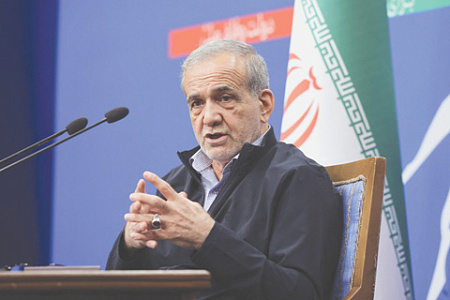
Iran has announced the formation of a new, centralized Defense Council to streamline its military command, a move that comes as Tehran flatly rejected the prospect of direct negotiations with the United States. This signals a significant hardening of its posture amid escalating regional tensions following a recent conflict with Israel.
On August 4, an Iranian Foreign Ministry spokesman, Esmail Baghaei, definitively ruled out talks, stating that any future dialogue would first require holding the U.S. accountable and demanding compensation for what he termed “military aggression” against Iran’s nuclear facilities. This position echoes earlier statements by Foreign Minister Abbas Araghchi, who insisted Washington must pay for damages from a recent 12-day military exchange before any negotiations could begin.
In a parallel move signaling preparation for further confrontation, Iran’s Supreme National Security Council (SNSC) approved the establishment of the special Defense Council. The new body will be tasked with centralizing defense planning and enhancing the capabilities of the nation’s armed forces against external threats. It will be chaired by President Masoud Pezeshkian and will include the heads of the judiciary and parliament, along with top military commanders and key security ministers.
This unprecedented initiative is widely interpreted as a direct response to the strategic fallout from a recent Israeli military operation. During the conflict, Israeli precision strikes reportedly eliminated dozens of senior Iranian generals, severely disrupting the country’s command and control structure. The Defense Council aims to unify the command of the regular army and the powerful Islamic Revolutionary Guard Corps (IRGC) to create a more cohesive and responsive military force.
Iranian military leaders have stressed that the threat of another conflict remains imminent. The army’s commander-in-chief, Lieutenant General Amir Hatami, recently stated that even a minor probability of an attack from Israel must be treated as a certainty, confirming that Iran’s missile and drone units remain on high alert. These forces are prepared to be deployed at the first sign of military activity by Israel or the United States.
Analysts view the creation of the council as a clear preparation for future warfare. Kirill Semenov of the Russian International Affairs Council noted that the new structure is designed to enable faster, more operational decision-making. He pointed to Iran’s slow and complex internal deliberations during the last conflict as a key weakness the Defense Council is intended to fix, allowing military and civilian leaders to bypass bureaucracy and respond more decisively in a crisis.
Despite the diplomatic standoff with Washington and the heightened military readiness, a delegation from the International Atomic Energy Agency (IAEA) is scheduled to visit Iran. Officials have indicated, however, that these discussions will focus on the “political side” of the nuclear issue rather than new technical inspections of its program.
